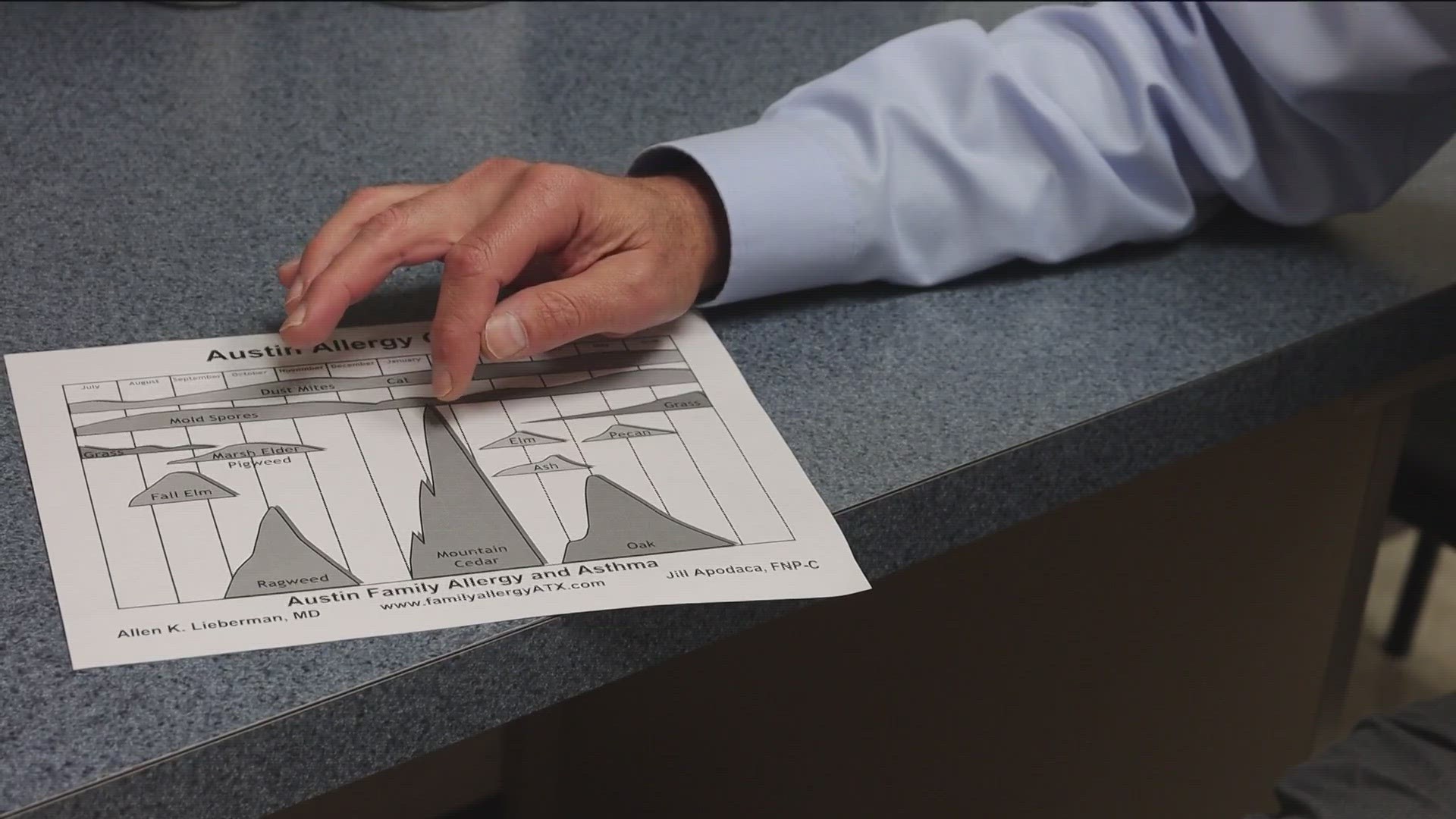AUSTIN, Texas — Here in Central Texas, pollen levels usually start to climb in March. However, people have started feeling it as early as February this year – and many are still suffering.
"This is one of the first years that I actually remember seeing a bluebonnets in February," said Dr. Allen Liberman, an allergist with Austin Family Allergy and Asthma. "The last week in February, I actually saw bluebonnets ... not that they're allergic, but it's an indicator that spring is coming early."
Experts say climate change is to blame for early allergies.
"One of the consequences will be that we'll have seasons are going to last longer, and the plants are going to produce more pollen," Liberman said.
More pollen means allergies will feel more severe, but those who are new to Central Texas might not be affected right away.
"Generally, it takes the body a year or two to recognize and process an allergen," Liberman said. "And so, usually, when people have an allergic reaction, they're not reacting on their first exposure. Usually, it's on subsequent exposure ... it requires living here for a few years."
If you've been in Central Texas for two to three years, your allergies are likely the worst they've ever been. Additionally, there are a wide variety of allergens to contend with in the area.
"You have the oak pollen from the trees very early, usually around early March, mid, late March," Liberman said. "Then followed by grass season, so you almost have two major seasons kind of overlapping with each other. Spring can be pretty severe."
What's special about Central Texas, unlike other parts of the state and the U.S., is that it has three allergy seasons, according to Liberman. Other regions only have two major seasons.
If you're suffering from allergies, there are a few things you can do.
"Try to stay indoors a little more, maybe indoor activities," Liberman said. "But for people who are going outside, the medications work really well. So, you have allergy medicine, antihistamines, nasal sprays, eyedrops ... people will combine those."
However, for those having trouble despite using over-the-counter medication, Liberman recommends immunotherapy.
Immunotherapy, or allergy shots, builds up a person's immunity to one or more allergens through increasing doses of whatever triggers the allergies. While it is not a quick fix, many people find their improved health to be well worth the time and effort, according to the Austin Family Allergy and Asthma website.
"That has to be started before the season," Liberman said. "So, typically, what we recommend for people, is to power through the season with the medications and then get allergy test over the summertime and then come up with a treatment plan to help prevent this from happening. So, the big difference what immunotherapy does it tries to make your body less allergic."

